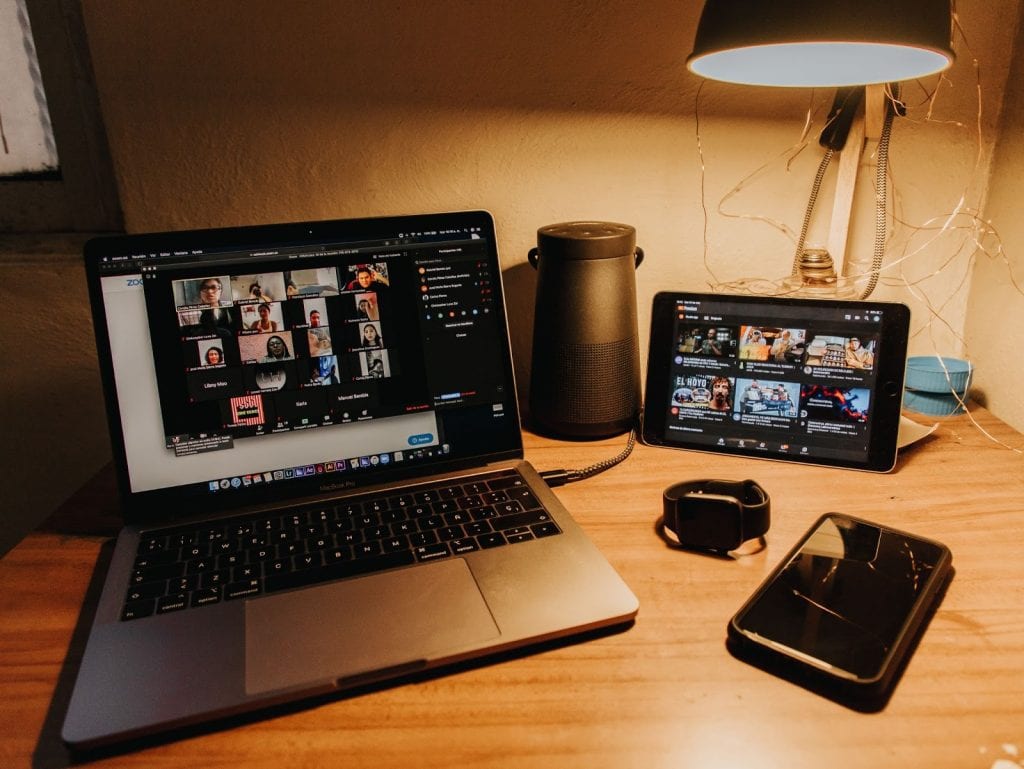“It is important to role model the whole idea of self-care to people.” As a leader in his community, Narash, co-founder of non-profit organisation Impart, shares how expressing the need to take mental health breaks has helped those under his care to prioritise their mental wellbeing too.
Leaders often forget how much influence their actions have on their community members. How does one approach the topic of mental health and cultivate a culture that prioritises mental health in the office? Beyond providing access to mental health resources, the leader plays a key role in reaching out to community members in order to eradicate the stigma surrounding taking breaks and seeking help.
For inspiration, there are leaders who are successfully incorporating self-care policies into their organisational policies. In early April, a few of them came together to talk about the importance of mental health and the structures of care they have in place in their communities.
One point that they all agreed on was that the culture of care in organisations is not difficult to achieve after all — it is a mindset that develops as leaders prioritise their own mental health.

Leaders Require Self-care Too
Understanding self-care is one thing. Taking a step back to set aside time for self-care, on the other hand, is one of the biggest hurdles for leaders who find themselves working round-the-clock and juggling various responsibilities.
Shuet-Li, Executive Director at Resilience Collective, laments that one of the biggest hurdles for leaders in Singapore is time. “Many of us have too much on our plates… we need to be very deliberate about cutting out time in the week to take care of [ourselves].”
One piece of advice that Jay, the Operations Head at Impart, has is this: self-care is a team effort. Community involvement allows us the space to rely on others as they rely on us, meaning that self-care does not have to be a solo journey, even when being a leader feels lonely. It helps to think of self-care as something larger than ourselves.
Does Balance Exist?

In a fast-paced society where time is of the essence, many of us skip breaks to make sure that we are on track. While this mindset seeks to spur productivity and achievement in the workplace, bringing the same competitive values into our personal lives has detrimental effects on our wellbeing.
Women, especially, may find themselves having to push themselves to meet unrealistic expectations in both the workplace and the household, causing them to feel hesitant — and even guilty — about making time for themselves.
Mara, Project Director at Johnson & Johnson’s Global Community Impact APAC team, offers that balance is an unrealistic ideal. “Balance is not for me. I think we need to make conscious decisions to drop something. We can’t possibly balance everywhere. The idea of the ‘Perfect Woman’ — the woman who has her career, and takes care of her family, has a pet project on the side, runs a social enterprise, and is on various boards”. She explains that she doesn’t aspire to such a state because when trying to achieve too much, she achieves less overall.
Narash adds that balance doesn’t look the same for everybody. It’s a subjective experience. Although to him, his life may be balanced, he explains,“ I’m not sure that if someone sees my life, that they would think it is balanced. They will probably think that I am kind of crazy! (laughs).”
What Narash does that has helped him tremendously is to set aside pockets of “me time” throughout the day. His role requires him to speak to many people throughout the day. Having multiple breaks in between these interactions gives him the space to breathe and focus solely on his energy – ensuring he has time to reflect on what makes him happy and what keeps him going.
Why Boundaries are Crucial to Mental Wellbeing
Given their passion for their jobs, many community leaders don’t mind their workloads at the beginning. But the threat of burnout quickly arises when boundaries are not managed.
Jay shares that before practicing self-care, he often found himself struggling internally with a routine bargain. Being results-oriented, Jay approached his responsibilities at Impart with an “effort and reward” model. In that model, he would tell himself that putting in more effort first means what needs to be done gets done sooner. Once he has settled what was needed, there would be time to take a break. Except the break never comes. For people who operate this way, they may eventually spiral into fatigue and burnout due to overcompensation of effort that never sees proper reward.
Boundaries are more important than we realise. When we do not listen to our emotional needs and understand our triggers, we end up taking on more responsibilities than we can. This then affects the quality of our work. We forget that in addition to what we have to do, there is value in doing more of what we want to do instead. Pacing ourselves, making time for our passions and not always saying “yes” to work that we are less passionate about is another way to care for wellbeing. By leveraging the different interests and strengths of the team and delegating well, you can create a better result and reinforce the benefits of self-care and boundaries.
Self-care, therefore, also means striking a balance between knowing when to be task-focused and when to be emotion-focused. This is a unique balance we each need to figure out for ourselves. Difficulties may arise when we tip over into becoming too task-focused. Instead of pushing ourselves beyond our limits, we need to accept our limits and rely on others. We do not have to feel guilty about every unsatisfactory result. Additionally, being honest with our weaknesses gives others the chance to step up, learn, and grow. As we allow others to share the load, we feel less guilty about every unsatisfactory result – we don’t have to be the only ones responsible!
A Culture of Care in the Workplace Starts from the Individual

Covid-19 served as a wake-up call to many organisations. The sudden plummet in pace of life forced us to reflect on the areas that are currently lacking, a huge one being mental healthcare and social support in the workplace.
Peer-powered groups such as Resilience Collective has been focusing on the importance of self-care policies.Due to the organisation’s collective focus on mental health, Shuet-Li shares that self-care policies are just as important as any other organisational policy, and that flexible working policies are essential as means of protecting their most precious resource — their employees.
“Our organisation’s policies are structured in such a way that we allow them (employees) that time for self-care. If I push any one of my team members to keep going at it, they will fall ill. If I over push any one of my team members, in their commitment to getting the job done, they may risk burnout.”
Making sure that employees display Resilience Collective values that help create a culture of care are also part of employee evaluation. Through this, a distinct environment that encourages one to prioritise mental wellbeing is naturally sustained, with both employees and employers alike being well taken care of.
With work-from-home being the default arrangement for employees who are able to, boundaries of work and leisure have become increasingly blurred and difficult to navigate. Working from the comfort of our own home could easily make us work over time. Digital interactions are equally, if not more tiring and frustrating than in-person meetings. As such, small actions taken to prioritise self-care are as important as ever, but are just as important.
Individual acts of self-care can make a difference to the overall well-being of teams and organisations. Mara stresses the importance of taking breaks. She finds that the more she lives by her calendar, the more she incorporates breaks into her schedule, forcing her to take time off and do other things that matter instead of being easily distracted by work tasks that are only one click away. She blocks out time for everything — from brushing her teeth in the morning, to cooking lunch, or simply marking hours as “me time”. The more she does this, the less frantic she gets as she manages to schedule enough time for leisure and work. She has also shortened one-hour meetings to 45 minutes. This gives her and the team time to breathe and digest information, especially when meetings occur back-to-back.
Promoting individual self-care, especially during work-from-home arraignments, ensures that teams and organisations are able to cope with the demands of their job as well as their own mental wellbeing.
How Leaders Can Encourage The Importance of Mental Health

The easiest way for leaders to get their members to start prioritising their mental health is not only to lead by example, but also to create an environment where members feel safe enough to express their opinions and share their concerns.
Narash recalls, “I think it is important to role-model that whole idea of self-care to people. After a very difficult session with a client, I will tell my staff or volunteers that ‘I am taking a mental health break right now.’ I verbalise it. I help them to know that it’s okay. And the more I do it, I realise that the more they, too, start to do it.”
By encouraging employees to prioritise their mental wellbeing, they also become more aware of what stresses them out, as well as what they like doing in order to combat that stress. Creating a safe space for employees (and leaders alike) to reflect gives them the opportunity to define what establishing boundaries looks like for them. Not only does this benefit the workplace due to increased productivity and employee welfare, but can serve as a valuable lesson applicable in other areas of life.
A Reminder to Take Care of Yourself
A healthy environment that flourishes under strong, empathetic leadership also inspires employees to step up and take care of those around them. As community members feel more comfortable taking care of themselves even amidst busy periods, they learn to take care of those around them and become small community leaders in their own right.
For your reflection
- What changes do you wish to see in your workplace, and what are the ways you can help make that change?
- Do you give yourself permission to take breaks?
- How can you help create a safer work environment that encourages vulnerability?





















